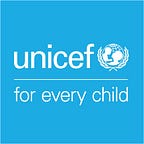7 May 2018
Every child deserves a fair chance. A childhood. A future.
Every year, 1 million babies take their first and last breaths on the day they are born. Another 2.6 million are stillborn. The vast majority of these deaths are preventable.
Around the world, an estimated 7,000 newborn babies die every day — mainly from preventable causes, such as infections, prematurity or complications at birth. Another 7,000 are stillborn. The tragedy is that we have the tools to save them. Access to affordable, quality health care delivered by well-trained medical staff, health facilities equipped with electricity and clean water, and nutrition counselling to mothers to help them feed their babies right are among the simple, practical solutions that can be the difference in whether a newborn lives or dies. Without these basic solutions and strong support from their governments, communities and families, the babies featured here easily might have become part of the sad statistics. The world can and must do better to keep every child alive.
Seven-day-old Priscilla, in Peru, sleeps cradled in her mother’s arms, at the health centre in Yaurisque District. Without a Caesarian-section, access to the health centre and a ‘mother’s house’ (a hosting facility near the health centre) where her mother was able rest before giving birth, and the assistance of a skilled midwife, Priscilla would not be here today.
“I was diagnosed with epilepsy when I was 16 years old,” her mother, Celia Virgina Flores Mamawi, said. “Despite my illness — epilepsy — my midwife gave me confidence that everything would be okay.”
Baby Ayedatujannah, 29 days old, cradled by her mother, Jannatul Ferdousi, was born premature in Bangladesh. Ayedatujannah, whose name means, ‘she who returned from heaven’, did not cry after she was born. Under 2 kg and on life support for four days, she was convulsing and turned blue. Thanks to a UNICEF-supported special care newborn unit — a recognized centre of excellence — and her mother’s breastfeeding, she has survived.
“When I realized she was going to make it, I felt like I was in ‘Jannah’ (Heaven); it was the best thing I could ever get in life,” her mother said.
Youssouf is lovingly held by his mother, Hawa Diawara, as he sleeps, at the community health centre where he was born, in Koumantou, Mali. Youssouf, 24 days old, was born healthy. Thanks to functioning health facilities with electricity and clean water, like at this health centre, Youssouf and other babies are avoiding life-threatening infections.
“I was so happy when Youssouf arrived — he is my first baby,” Ms. Diawara, 18, said. “I hope that he grows up healthy. Good hygiene is crucial so that he grows up healthy.”
Uuriintsolmon, 2 weeks old, in Murun, Mongolia, was born healthy and, unlike her older sister, remained in good health after her birth. Her mother, Bayarmaa Erdenejargal, has learned how to properly care for them both, as well as herself, thanks to home-care training.
“I didn’t always know how to take care of my first baby — she had jaundice, skin infections, a runny nose, and felt cold. At one point, I feared she might die. I was very worried about her. With my second baby, I entered antenatal care much earlier … I feel confident now. I wish for my daughters to have a healthy life.”
7000 newborn babies are dying every day. Take action and sign the petition now. Every Child ALIVE.
